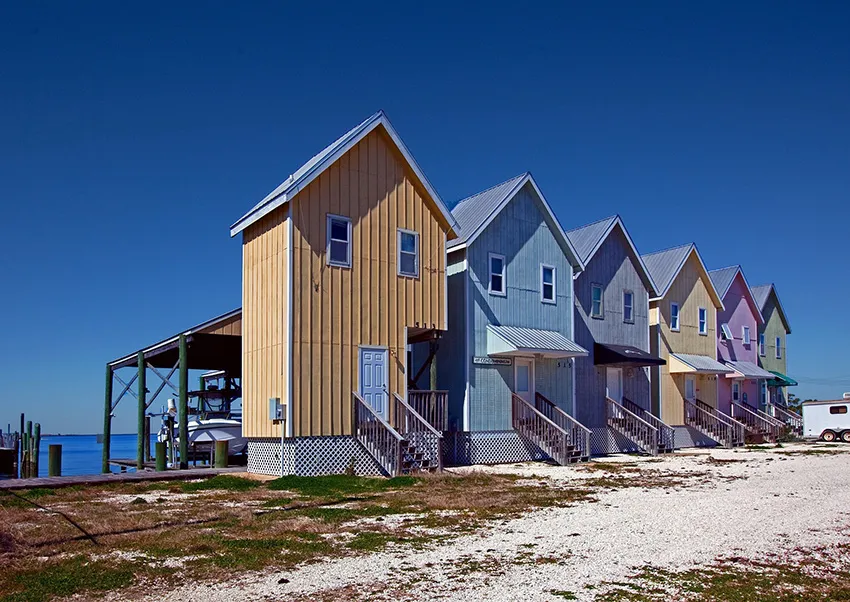Many Australians now own investment properties that they let to long-term tenants, and there is also an increasing interest in short stay letting. Then there is the more complex scenario of those who are letting all or part of their primary residence. What kind of insurance do they need, Home or Landlord? Although the covers may be similar, there are some important differences that all property owners should be aware of.
Home & Contents insurance
This is the type of cover that most home-owners would be aware of. If it’s a free-standing home or a townhouse on its own title, it will probably feature Building as well as Contents cover. If your home is an apartment or unit covered under strata, the building will most likely be covered under the Body Corporate’s insurance, so you will only require Contents cover.
You may just have a basic Listed/Defined Events policy, or you may have opted for Accidental Damage cover [click here to learn about the different types of policies]. The type of cover is normally specified on your insurance schedule.
Typical policy features
A Domestic Home policy will normally cover your building and all your property’s contents, and also provide cover for your personal effects and, importantly, temporary accommodation cover. This cover is provided in the event that your home is damaged and covered by an insured event and is uninhabitable while repairs are being carried out. In those circumstances your insurer will fund your stay in alternate accommodation up to the limit in the policy. You will also be able to specify special cover for valuable items, which will also normally be covered away from home.
Under a normal Domestic Home policy, there is usually no provision for Tenant damage, Loss of Rent or Rent Default, as the cover has been designed for owner-occupied properties. Although a domestic policy may allow some types of business use (ie: cover for a home office), it will be limited. In some cases, the policy may allow limited home-sharing but you will always need to check with the insurer.
Landlord insurance
Landlord policies share many of the characteristics of Home-type insurances:
- Usually available as Accidental Damage or Listed Events options, just like Home policies [click here to learn about the different types of policies].
- Like a Domestic Home policy, you can opt for Building & Contents, or just Building or just Contents, depending on whether the Building is covered under a strata policy
- Some Landlord policies allow Short Stay occupation, but many do not so you need to check with the insurer
- Landlord policies nearly always feature cover for Tenant Theft, Rent Default and Loss of Rent. These features may be built into the policy, or may be optional extras for paying an extra premium.
This is where it gets different:
Landlord policies will not cover the landlord’s personal effects. The landlord’s furnishings & fittings will certainly be covered up to the sums insured, but their personal effects won’t be. Why? Because Landlord Insurance has been designed on the premise that the property owner does not live there.
Temporary Accommodation is not covered under a Landlord policy. This means that if the property is damaged and needs repair, the policy will not fund accommodation elsewhere. This is because it is assumed that the Landlord does not live on the premises.
But I want my cake…
These fundamental differences in covers can pose dilemmas for short stay operators who are letting their primary residences. They may be letting a spare room in their house while in residence, move out when they get a booking, or let the entire property while on holidays
Ideally, an owner-occupied property would be covered under a Domestic Home & Contents policy for maximum protection for the owner. The down-side is that these policies often don’t allow short stay letting at all, or only for very limited timeframes (ie: no more than 6 weeks per year), and/or limited cover (ie: may cover public liability, but not guest damage).
Alternately, a Landlord policy may provide a viable solution. A short stay-friendly Landlord policy may allow fully flexible and unlimited letting* while the owner lives on the property. It may allow the owner to maximise the letting potential, however the owner needs to be fully aware that they will not enjoy the full range of protective covers afforded by a Domestic Home policy.
*Landlord products and options vary, so always read the PDS and ask your broker for advice if in doubt.
So, what if you are hosting short stay guests in your own home but you are uncomfortable with the gap in cover? Ask Ceneta about additional top-up Contents cover.




